More than 50% of FDI enterprises reported losses, 18,140 enterprises suffered accumulated losses, the total accumulated losses reached nearly 1 quadrillion VND. Experts warn that the problem of 'fake losses, real profits' causes tax losses and market distortion.
Concerns after the loss of nearly 1 million billion VND
Statistics from the Ministry of Finance show that by the end of 2023, out of a total of about 29,000 foreign-invested enterprises (FDI), up to 16,292 companies reported losses, 18,140 enterprises suffered accumulated losses, the accumulated loss value reached nearly 1 million billion VND; the amount paid to the state budget in 2023 decreased by nearly 4,000 billion VND compared to 2022.
Experts say that more than 50% of FDI enterprises reporting losses is a worrying number.
Sharing with VietNamNet reporter, economic expert - Dr. Vu Dinh Anh - said that FDI enterprises suffer losses due to many reasons, both subjective and objective. Some enterprises face business risks, so they suffer losses, even go bankrupt - this is normal, in accordance with market rules.
However, many FDI enterprises continuously suffer losses but still operate for many years, even expanding production, which is contrary to market rules, because of transfer pricing, so there are fake losses and real profits.

According to Mr. Anh, transfer pricing is a common phenomenon in the world , especially in large transnational corporations to maximize profits and avoid corporate income tax obligations by optimizing tax rate differences.
“Transfer pricing and losses due to transfer pricing not only cause tax losses but also distort the price level, making it impossible for prices to demonstrate their role as market signals and fair competition tools. Transfer pricing also distorts the market, both the domestic market and the import-export market, and unfairly oppresses domestic enterprises while FDI enterprises have enjoyed many outstanding incentives,” Mr. Anh analyzed.
MSc. Nguyen Binh Minh, lecturer at the University of Commerce, also said that not only Vietnam but any country receiving foreign investment faces transfer pricing challenges.
“From an investment perspective, if FDI enterprises continue to expand in scale, continue to create jobs, and continue to grow, then of course investment must also increase, and it is normal for accumulated losses to still occur.
If the business does not expand its investment scale, does not expand its market, and reports no increase in sales but still reports losses, it is very possible that the business is transferring prices to evade taxes," said Mr. Minh.
Master Vu Tuan Anh, an expert in digital transformation - green transformation and innovative startups, commented that transfer pricing is a complex issue in the financial and tax management of multinational corporations, especially when parent companies and subsidiaries set their own costs for each other. This creates difficulties in establishing a common standard and legal framework to control and cut costs in a reasonable manner.
“Companies often tend to adjust the value of internal transactions to optimize tax obligations, which can cause loss of revenue for the country,” said Mr. Tuan Anh.
Proposed preventive solutions
Mr. Vu Tuan Anh proposed three solutions to prevent transfer pricing.
One is to carefully study the approval of FDI investment. Before approving an FDI project, the management agency needs to have a strict inspection and evaluation mechanism.
Requiring companies to disclose their tax rates in the markets where they have invested is an important measure. For example, if a company has a similar project in Thailand, it needs to report the tax paid there to compare with the expected tax rate in Vietnam. This helps ensure transparency and reduces the risk of exploiting differences in tax policies between countries.
Second, FDI enterprises are required to provide management agencies with detailed plans on pricing mechanisms between parent companies and subsidiaries.
Businesses need to forecast their tax payments over 5-10 years under different scenarios, including whether the business is profitable or losing money. This helps authorities assess the long-term financial impact and minimize the risk of tax evasion.
Third is the balance of rules between investment sources.
An important principle in investment attraction policy is not to differentiate between FDI and domestic capital. Investment incentives should be calculated based on total committed capital rather than the source of cash flow. This helps create a fair playing field, ensures a transparent business environment, and maintains healthy competition between domestic and foreign enterprises.
According to Master Nguyen Binh Minh, for FDI enterprises that continuously report losses when they do not expand their investment scale and market, management agencies need to have inspection and auditing measures.
Any investment project, when preparing an investment project, has an expected payback period and a profit period. The management agency can compare and require the enterprise to comply with Vietnamese law and pay taxes in full.
“Anti-transfer pricing measures are relatively complete and diverse, but their application requires not only management skills and abilities but also determination and ethics,” said Dr. Vu Dinh Anh.

Source: https://vietnamnet.vn/dn-ngoai-lo-gan-trieu-ty-o-viet-nam-dau-la-dau-hieu-lo-gia-lai-that-2372666.html






![[Photo] National Assembly Chairman Tran Thanh Man meets with Thai Prime Minister Paetongtarn Shinawatra](https://vphoto.vietnam.vn/thumb/1200x675/vietnam/resource/IMAGE/2025/5/15/e71160b1572a457395f2816d84a18b45)
![[Photo] Prime Ministers of Vietnam and Thailand visit the Exhibition of traditional handicraft products](https://vphoto.vietnam.vn/thumb/1200x675/vietnam/resource/IMAGE/2025/5/15/6cfcd1c23b3e4a238b7fcf93c91a65dd)



















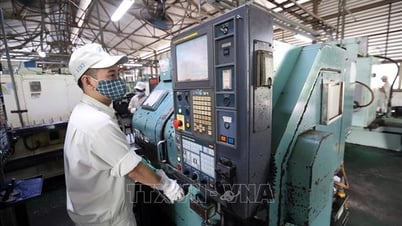

























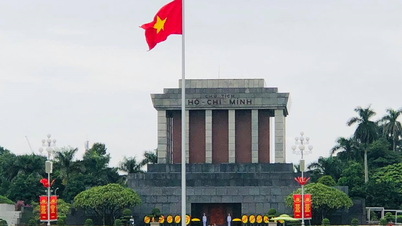


















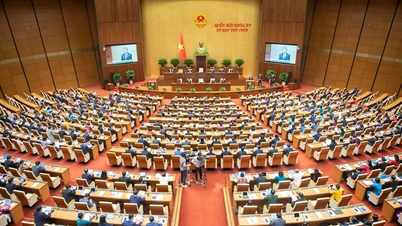














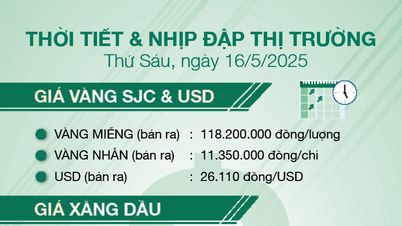
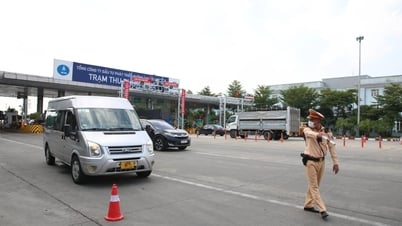













Comment (0)